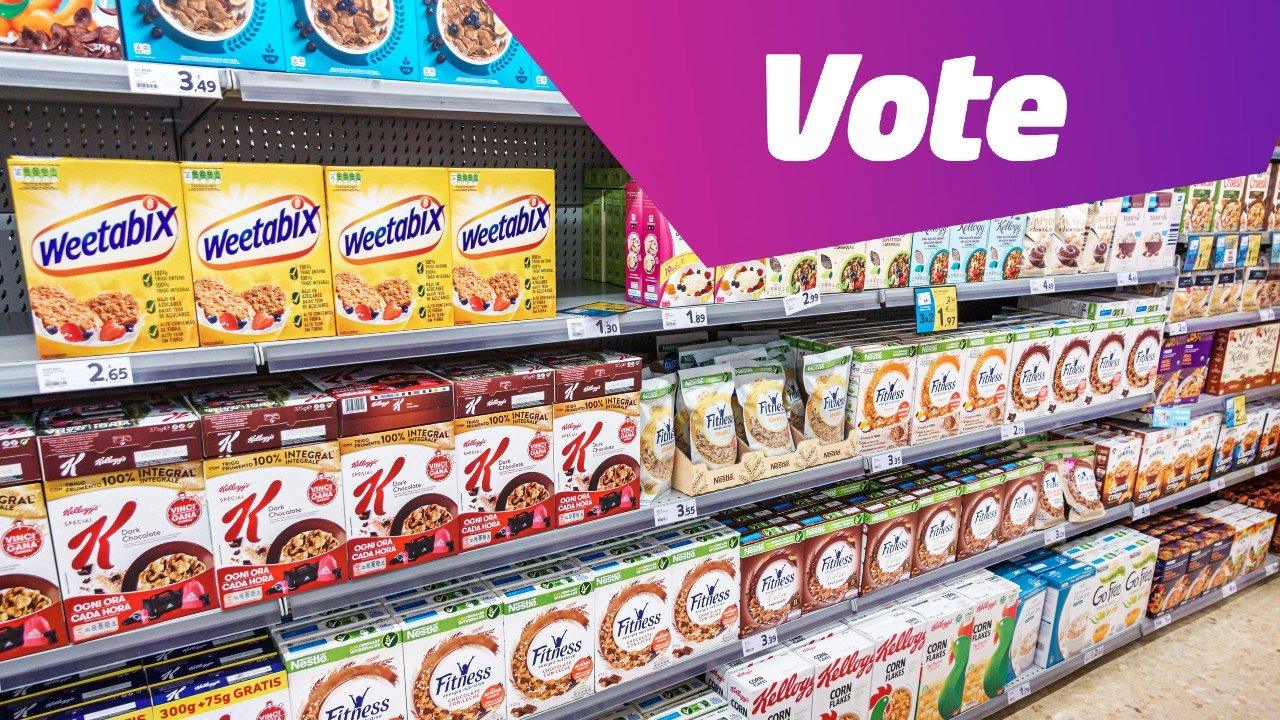Why is Kellogg's not happy about new rules for cereals?
- Published
- comments
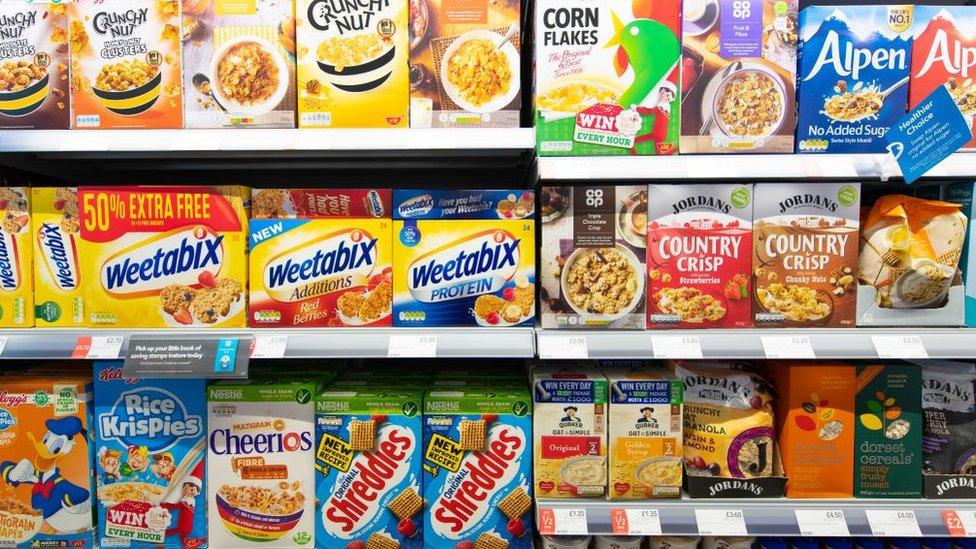
The government's new rules will restrict the promotion of food and drink that is high in fat, salt and sugar
Food company Kellogg's is challenging the government over new rules which would limit where some of its most popular cereals can be displayed in shops.
It's taking the government to court as it says the restrictions, which are due to take effect in October, fail to look at the nutritional value of the milk often added to its products.
The government's new rules, which follow other restrictions previously put in place, aim to restrict the promotion of food and drink high in fat, salt and sugar, encouraging people to make heathier food choices in the process.
They will prevent certain foods from being sold in highly visible locations in stores like checkouts, shop entrances and the end of aisles.
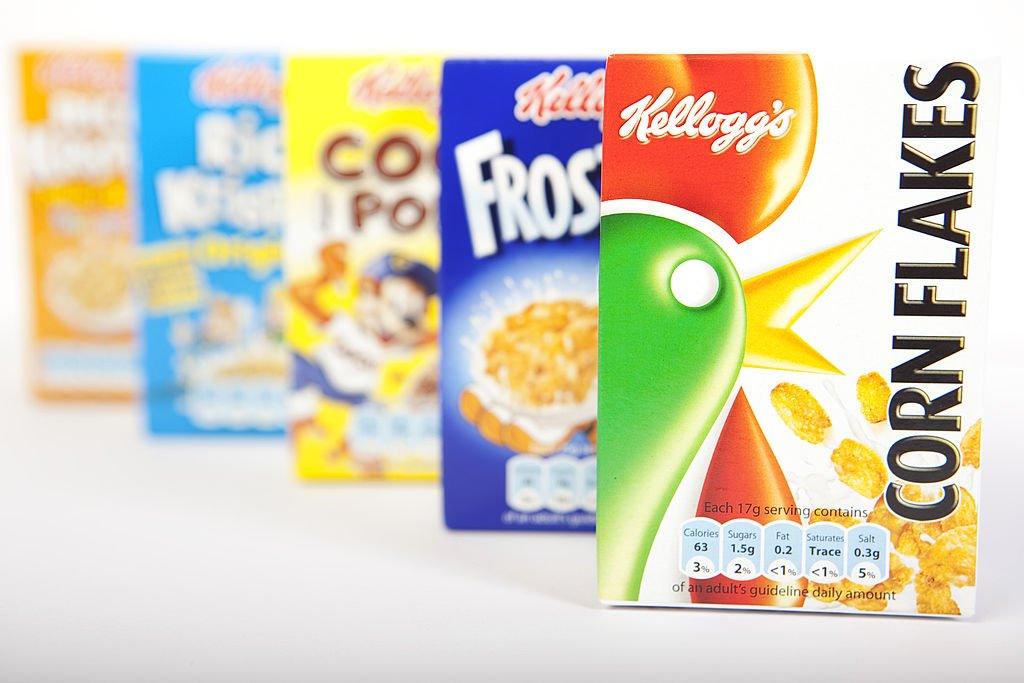
Kellogg's produces a number of popular brands including Coco Pops, Cornflakes and Frosties
However, Kellogg's, which produces cereal brands including Coco Pops, Cornflakes and Frosties, is arguing that the calculation used by the government to work out how much sugar is in its products is incorrect as it only applies to cereals in their dry form.
The manufacturer says cereals are eaten with milk or yoghurt in 92% of cases according to independent data, and this affects the overall nutritional value of the popular breakfast food.
"We believe the formula being used by the government to measure the nutritional value of breakfast cereals is wrong and not implemented legally" said Chris Silcock who is the company's UK managing director.
"It measures cereals dry when they are almost always eaten with milk.
"All of this matters because, unless you take account of the nutritional elements added when cereal is eaten with milk, the full nutritional value of the meal is not measured."
What has the government said?
The government has said it's introducing the new rules around sugary foods, which includes some cereals, as it believes this will help tackle childhood obesity.
"Breakfast cereals contribute 7% - a significant amount - to the average daily free sugar intakes of children," said a spokesperson from the Department of Health and Social Care.
"Restricting the promotion and advertising of less healthy foods is an important part of the cross-government strategy to halve childhood obesity by 2030, prevent harmful diseases and improve healthy life expectancy, so we can continue to level up health across the nation."
Dr Radha's guide to a healthy diet
What else has been said?
Other organisations are in support of the government's plans to make unhealthy foods less accessible to children and believe Kellogg's should be aiming to do more to comply with them.
"If Kellogg's genuinely supports the Government's obesity strategy then it would not be adopting this course of action, but instead getting behind plans designed to make healthier food and drink more available and affordable," said Barbara Crowther who works on the charity Sustain's children's food campaign.
"It is perfectly correct for the nutrient profile model to assess breakfast cereals on the basis of what is actually in the packet as sold, and not what people choose to add to their breakfast, whether that is milk, yoghurt, juice, fruit or nothing at all."
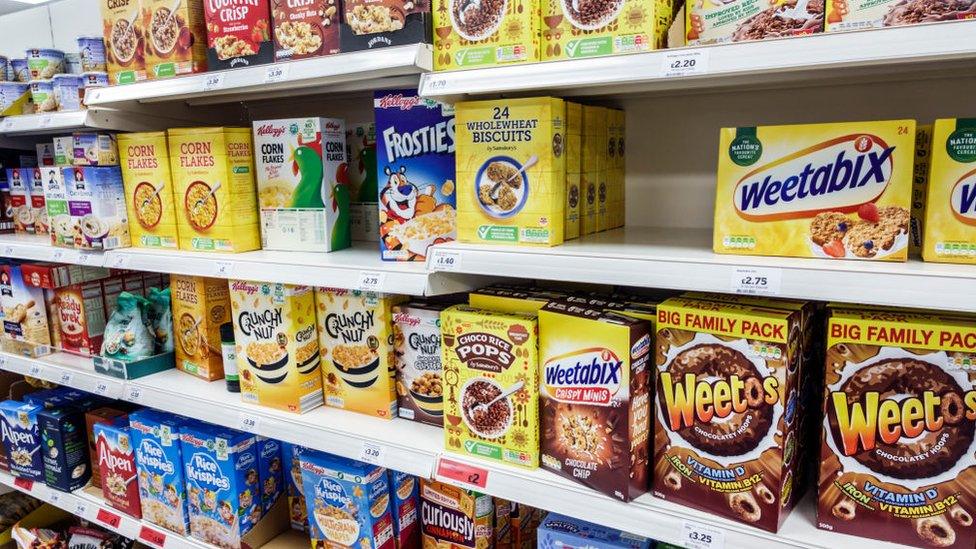
Some campaigners believe Kellogg's should change their cereals to comply with the government's rules
Caroline Cerny from the Obesity Health Alliance also thinks Kellogg's approach is wrong, saying:
"It's shocking that a company like Kellogg's would sue the government over its plans to help people be healthier rather than investing in removing sugar from their cereals".
The government looks set to fight the case to prevent other manufacturers of foods which are high in sugar, salt and fat from taking a similar approach to Kellogg's.
A hearing on the issue will be held at the Royal Courts of Justice in London.
- Published4 December 2021
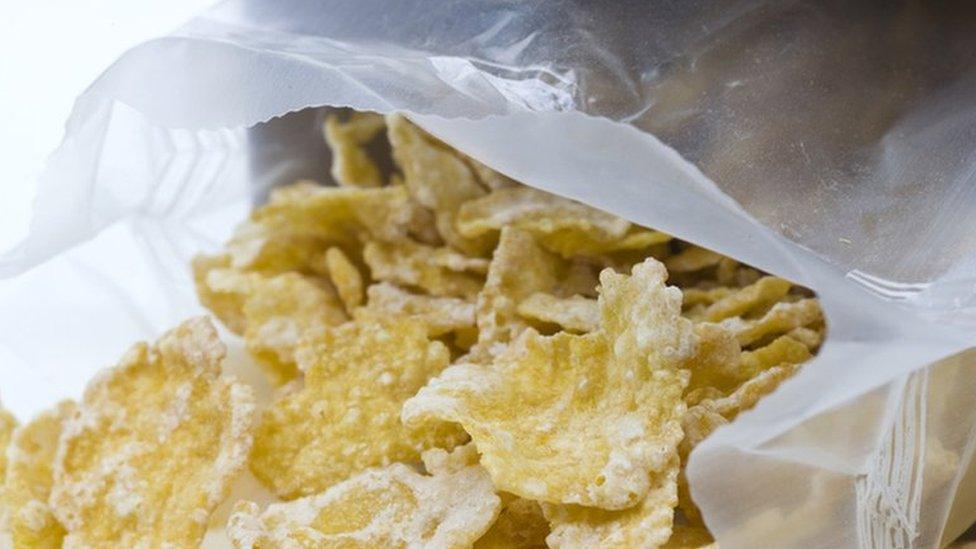
- Published14 May 2021
